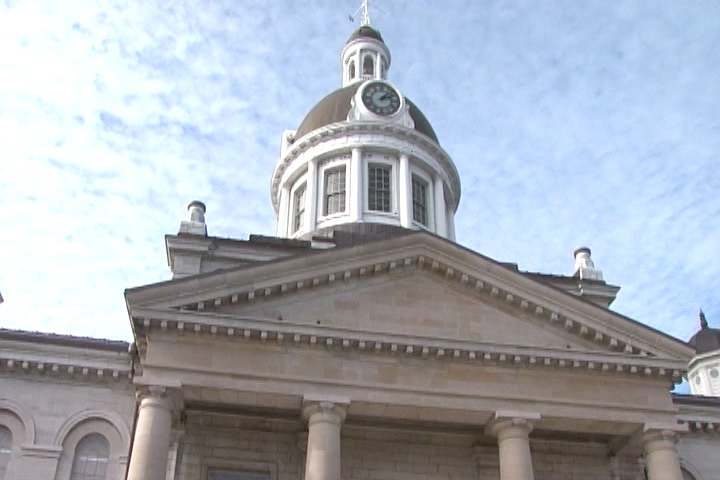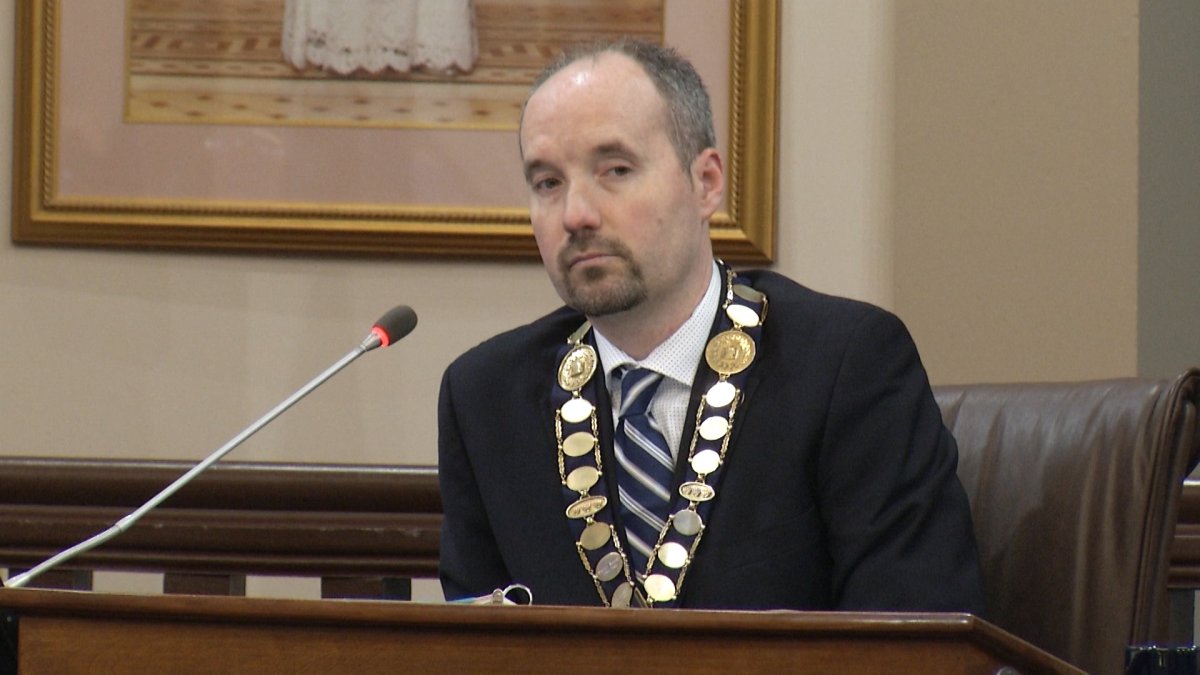Tensions were running high at the first 2019 meeting of Kingston city council after a senior manager voiced concerns over a “lack of trust” between staff and councillors, just a few weeks after they were sworn into office.

The complaint was raised as councillors argued for hours over the best way to establish a list of priorities that will guide them during their four-year term in office.
At its first meeting of the year, council passed a contentious motion to hire a professional facilitator — at a cost of about $10,000 — to help councillors through their upcoming strategic priority workshops over three nights in March.
WATCH: Kingston city council sworn in at inaugural ceremony

It’s become standard practice over the past several years for Kingston’s elected officials to establish a series of goals at the outset of their term. These goals are meant to guide policy decisions and the spending of tax dollars.
The goals are usually broad: the last council highlighted a number of issues to tackle such as creating more affordable housing, investing in “smart” economic growth, capping property tax hikes at 2.5 per cent, promoting a cleaner environment and investing in transportation projects.
Many councillors agreed that the use of a facilitator — similar to what was done four years ago — is a very effective way of keeping politicians focused on brainstorming ideas.

Get breaking National news
“It’s a highly effective and a fair way for 13 people with very diverse political opinions to come together and support a common plan,” said Mayor Bryan Paterson at the Jan. 8 council meeting.
The mayor also put forward an amendment, which received unanimous support, to allow for broad public consultation in the weeks leading up to the priority-setting workshops, including accepting written submissions from the public, setting up an online survey and hosting a town hall-style meeting on Feb. 19.
“I don’t think we need to reinvent the wheel when it works so well. But there is an opportunity to make it better through some consultation,” he said.
Coun. Jim Neill supports the added layer of input.
“It is imperative to also seek some public input and public consultation and make sure that process is very transparent,” Neill said.
Rookie Coun. Wayne Hill also supported advance consultation but says the voter feedback he received while campaigning remains fresh in his mind.
“We learned a lot. That information is going to be extremely valuable,” he said.
However, the quest to make council’s goal-setting process more inclusive and transparent stretched into a three-hour debate that included multiple attempts to amend the motion and generated feelings of mistrust among senior staff.
Coun. Jeff McLaren pushed his colleagues to alter the process further, saying that Kingston’s 2014-18 strategic plan was too heavily guided by staff and not council, lacked oversight on the final wording and failed to have any political scrutiny at the end of the term to measure what was accomplished and what wasn’t.
“If we’re going to delegate our job to a facilitator then what are we here for — for show?” McLaren said.
Pointing to a colourful municipal priority brochure, McLaren suggested that staff altered some of the text in the final draft of the 2014 strategic document, saying it didn’t fully reflect council’s plan to create more affordable housing. He says the wording change was made after the priority workshops concluded but before the draft document was presented to council for a final vote, which was passed without question at the time.
“All of that time was wasted when the text was changed. That strikes me as a point of improvement,” he said.
His comments rankled the mayor, several councillors and community services commissioner Lanie Hurdle, who denied any attempt to change council priorities after the fact.
“The underlining issue here seems to be a lack of trust in staff,” Hurdle told council.
Hurdle added that council doesn’t have to approve staff reports and can take any questions surrounding staff trust to in-camera meetings to resolve.
Paterson and others jumped to the city staff’s defence, denying any attempt to alter the will of the last council.
“I am deeply troubled,” said Paterson of McLaren’s suggestion, adding: “It implies that something was done incorrectly.”
McLaren later attempted to clarify his remarks.
“This isn’t about a lack of trust. It’s about oversight and governance,” he said.
While Coun. Peter Stroud didn’t have any issue with how staff handled the last priority workshops, he did say the current council should do a better job of reviewing whether the goals it will set this term are actually accomplished and assessing the status of those goals.
Council voted to accept his amendment to seek “measurables” in the future.
Coun. Gary Oosterhof also questioned whether council is trying too hard to create a perfect wish list of goals.
“We’re making an awful lot of changes when we actually hit the ball out of the park,” he said, referring to the many accomplishments of the previous term.
After a marathon debate to hammer out the priority-setting process, the mayor quipped that a facilitator will be a welcome sight.
“That’s exactly what we need after the past couple of hours of debate tonight,” he said.










Comments